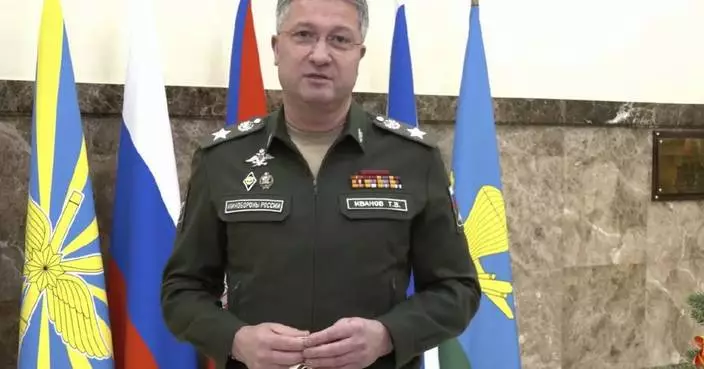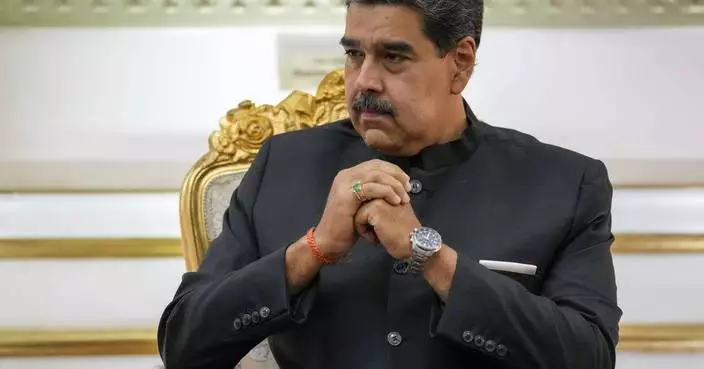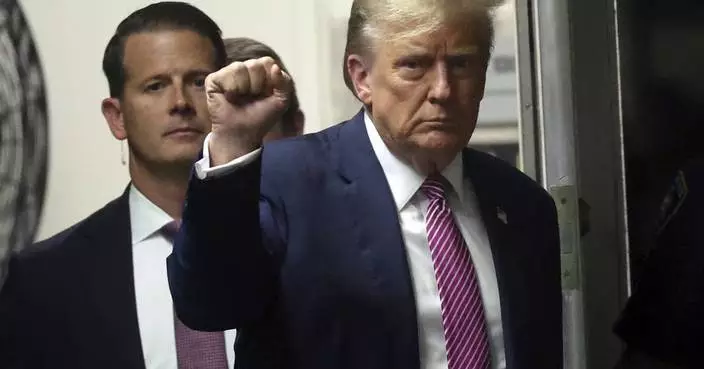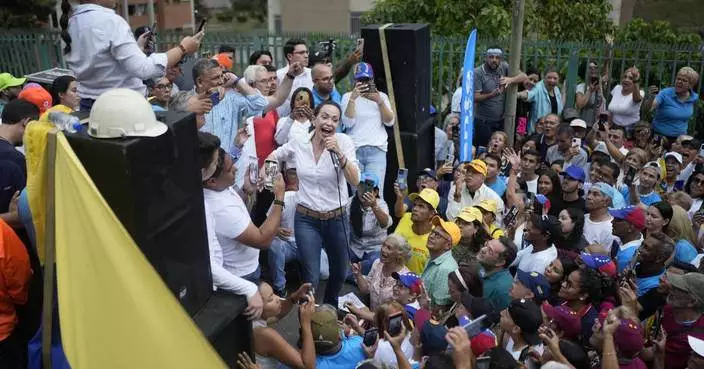Nicolás Maduro was set to extend his grip on power Tuesday as the ruling socialist party prepared to assume the leadership of Venezuela’s congress, the last institution in the country it didn’t already control.
Maduro’s allies swept legislative elections last month boycotted by the opposition and denounced as a sham by the U.S., the European Union and several other foreign governments. While the vote was marred by anemically low turnout, it nonetheless seemed to relegate into irrelevancy the U.S.-backed opposition led by 37-year-old lawmaker Juan Guaidó.
Exactly a year ago, Guaidó, in a blue suit and tie, tried to scale a spiked iron fence to get past a group of riot police blocking him from attending the parliament’s inaugural session, which according to the constitution must be held every year on Jan. 5.
A far cry from that electric display of defiance, Guaidó was expected to meet via Zoom with a cohort of opposition leaders for their own virtual parliamentary session.
Last month, anti-Maduro lawmakers, several dozen of them from exile, also gathered online to extend their mandate stemming from a landslide victory in 2015 for another 12 months, operating through an adjunct committee normally reserved for legislative recesses.
Supreme Court justices loyal to Maduro immediately struck down the law as invalid. But that hasn’t stopped the Trump administration from doubling down in its support of Guaidó.
“The national parliament will not be detained until there are free elections in Venezuela,” Guaidó said on Twitter recently.
While Guaido’s bravery hasn’t wavered, the opposition’s political fortunes have tanked as Venezuelans own hopes for change have collapsed. Recent opinion polls show support for Guaidó having fallen by more than half since he first rose to challenge Maduro two years ago.
Meanwhile, Maduro has managed to retain a solid grip on power and the military, the traditional arbiter of political disputes.
Gaby Arellano, a lawmaker exiled in Colombia, said that many in the opposition underestimated Maduro, thinking he stood no chance in a doomsday economic environment marked by hyperinflation, miles-long lines for gasoline and pulverized wages measured adding up to a few pennies per month.
But he’s managed to outmaneuver his foes through a mix of repression and co-optation exacerbated by the opposition’s own missteps, Arellano said. She expects a new round of repression now that Maduro has seized congress. On Tuesday, Guaidó blasted on Twitter photos of what he said were security forces surrounding his apartment building in Caracas. The AP was unable to confirm the reports.
Reflecting that lack of unity, a few lawmakers still inside Venezuela -- including Guaidó’s former deputy as National Assembly vice president -- signaled they would no longer lay claim to their seats.
“We’re at the start of what looks like a very dark, new phase,” said Arellano.
With Maduro easily boxing out the opposition, his biggest threat may come from within his own coalition.
To reward loyal allies and paper over tensions between hardline ideologues and moderates within the Bolivarian revolution, the makeup of the legislature was expanded by 100 seats. He also leaned on high-profile candidates, including First Lady Cilia Flores, in an ultimately futile attempt to boost turnout, which in the end was 30% — less than half of what it was in the 2015 election, which gave control of congress to the opposition.
The new congress will be headed by Maduro's former chief of staff, Jorge Rodriguez, who in the past led internationally-sponsored talks with the opposition as well as met with envoys from the Trump administration. Socialist party boss Diosdado Cabello, who is widely seen as the second most-powerful man in Venezuela, will lead the socialist party bloc.
Maduro, in announcing the leadership structure on Monday, called on the new congress to seek out dialogue with the opposition as well as focus on urgent economic measures.
“Venezuela has its eyes placed on the new National Assembly,” said Maduro, who was expected to attend Tuesday's inaugural session after years of steadfastly avoiding sessions overseen by the opposition.
—
Goodman reported from Miami.
PUTUCUAL, Venezuela (AP) — Some of the 10 women and teenage girls who recently came to a medical clinic in eastern Venezuela for free contraceptives fidgeted a bit when a community health worker taught them how to use an IUD, condoms and birth control pills correctly.
The health worker also asked what they knew about HPV, the most common sexually transmitted infection in the world and the cause of nearly all cervical cancer. The women, ages 16 to 33 — two of whom had traveled to Putucual by boat and bus — only one had learned about human papillomavirus in middle school. The rest had talked about it with friends or cousins, but never their parents.
None knew HPV vaccines exist, even though Venezuelan pediatricians have long recommended giving all children the vaccine starting at age 9.
Venezuela’s government has repeatedly broken its promise to provide the shots for free, and many public-school teachers don't follow the requirement to teach sex ed. President Nicolás Maduro 's administration claims the well-being of youth and women is a priority, but the onus is on parents to talk to their kids about HPV and pay for the vaccines at private clinics. That's out of reach for most in a country where private-sector workers earn $202 a month on average, and public employees' monthly minimum wage is $3.60 plus $100 in bonuses.
Most HPV infections are asymptomatic and go away without treatment. But some can lead to genital warts and cancers, primarily of the cervix, but also of the anus, penis and throat.
Official health care statistics are elusive in Venezuela, making it virtually impossible to know the rate of HPV infection or how many people have been vaccinated either privately or by nongovernmental organizations. HPV vaccine coverage estimates from the World Health Organization show a blank space for Venezuela.
In 2022, Maduro’s administration estimated 30% of Venezuelan women are affected by cancer-causing strains of HPV. But the Ministry of Popular Power for Health did not publicly provide the data nor historical figures to show how the rate may have changed.
Health care professionals in the South American country told The Associated Press that the government’s figure is an undercount.
“With HPV, all governments have a social and moral debt to the female population,” said Dr. Carlos Cabrera, an OB-GYN in private practice and director of the maternal fetal medicine program at the Central University of Venezuela. “But people don’t like to talk about sexual and reproductive health.”
When HPV shots first hit the market in the mid-2000s, the oil-dependent state's coffers were flush. The price of oil — Venezuela’s most valuable resource — was steadily climbing and the country produced more than a million barrels a day. In 2009, doctors urged the government of President Hugo Chávez to introduce the HPV vaccine into the country, but they were ignored.
In 2015, Ministry of Health officials appeared ready to start offering HPV shots, mentioning in the agency’s annual performance report that the country’s vaccine schedule would include them and they "would be administered starting in 2016.” By this time, Venezuela's budget holes due to financial mismanagement were apparent, but U.S. economic sanctions had not yet crippled the oil industry.
Venezuela's last vaccine promise came in late 2022 after it reached an agreement with GAVI, a public-private global alliance that helps poor countries procure vaccinations. Government officials said shipments were expected for 2023, but no shots were distributed then, and they are also not listed among those being offered during national vaccination week.
The Ministry of Popular Power for Communication and Information did not respond to questions from the AP about the status of the vaccines, including reasons for the delay.
GAVI, whose assistance is time-limited and requires government funding commitments, said in a statement that Venezuela “reconfirmed its ... intent” to introduce the HPV vaccine in November 2023. It did not answer the AP's question about when it expected the first shots to arrive, saying only that rolling out vaccines takes preparation time.
The health ministry’s vaccination schedule still does not list the HPV vaccine. But that has not stopped state television from occasionally airing a two-minute cartoon of a Maduro-lookalike superhero — “Super Mustache” — whose adversaries are accused of wanting to “destroy everything” in Venezuela, including the “vaccines for the youngest women.” Globally, girls and young women are the primary demographic for the HPV shot.
Private practices in Venezuela that obtain the vaccine through importers sell it for $100 or more, depending on the brand and city, and recommend one or two boosters — which cost extra. Very few can afford that in a country where paychecks of public and private-sector employees aren't enough to cover a month of food for a family of four, which exceeds $350.
Awareness about HPV is another issue: Public schools used to teach about STIs, giving students a chance to ask questions that they might not have felt comfortable bringing to their parents.
But educators now largely ignore the requirement to teach the subject — either due to personal beliefs or because meager pay forces teachers to find second or third jobs, to the point that they're not in the classroom five days a week.
“In theory, on paper, we have a decent sex education program that adheres to international standards, with correct messages,” said Dr. Lila Vega, a pediatrician and member of the Network of Mothers, Fathers and Representatives of Venezuela, an NGO that promotes the participation of parents and guardians in schools. “But in reality, we are not even teaching addition and subtraction, and sex education is not a priority.”
Under Chávez, the ministries of education and culture edited and printed several free textbooks. “Life and Comprehensive Health” for seventh graders had lengthy explanations on teen pregnancy, birth control methods and the cancer risks posed by HPV infections. It included an image of “possible lesions caused by HPV.”
Maduro’s administration last printed the textbooks in 2015. Education officials later set up a digital library to which teachers can refer students, but the health book was never uploaded. Some teachers still share a PDF version of the book with their students, and others refer kids to old copies in school libraries.
Adriana Yeguez, 33, who participated in the session at the clinic in Putucual run by the global medical charity Doctors Without Borders, believes adolescents like her 16-year-old son need more information than what they can get on their own or at school. So, she and her partner are talking to him about HPV.
“We do talk to him, especially about infections,” Yeguez said. “What if he gets one? Imagine that! What if there’s no cure or treatment? What if we don’t have money?”
In some Latin American countries, studies showed a lack of parental knowledge about HPV was an obstacle to vaccination. And in Venezuela, physicians say parents and governments also resist the vaccine due to cultural taboos and the false notion that girls will see it as a ticket to promiscuity.
The vaccine prevents more than 90% of cancers caused by HPV. Yuly Remolina, a researcher and oncologist in Mexico City, believes that statistic is the best argument for why governments should provide the shots and parents and young adults should seek them out.
“It is incredible to continue seeing young patients with cervical cancer who cannot be operated on, who have to be given chemotherapy and radiotherapy, and who end up dying of it," said Remolina, who sees patients from Venezuela, Colombia and other Latin American countries.
It's why Daniel Rojas, a community health worker at the Putucual clinic, urged the women and teens to seek medical attention if they suspect an HPV infection: “Don’t let the days go by just thinking ‘Maybe yes, maybe no.’”
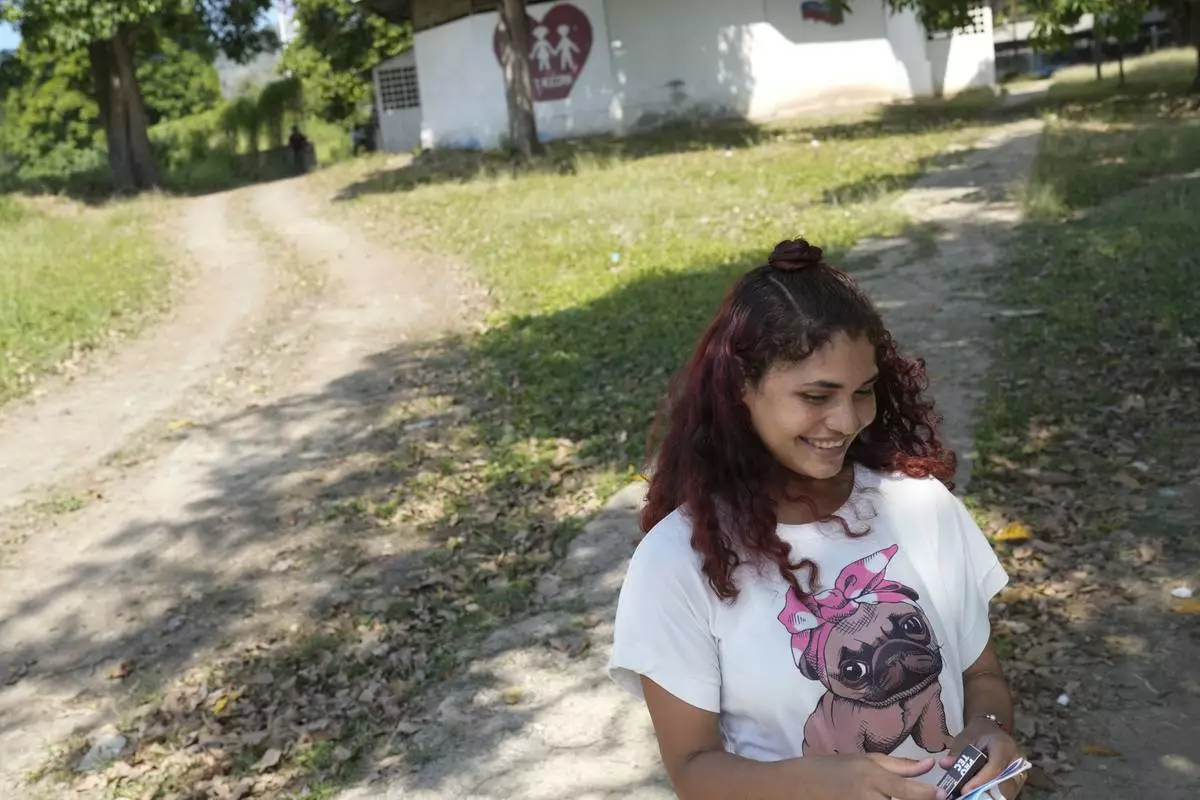
A patient leaves with a box of complimentary condoms after visiting the Doctors Without Borders medical clinic in Putucual, Venezuela, Wednesday, Jan. 10, 2024. While there she attended a discussion led by a community health worker who taught women and teenage girls how to use an IUD, condoms and birth control pills correctly and about HPV infections. (AP Photo/Matias Delacroix)
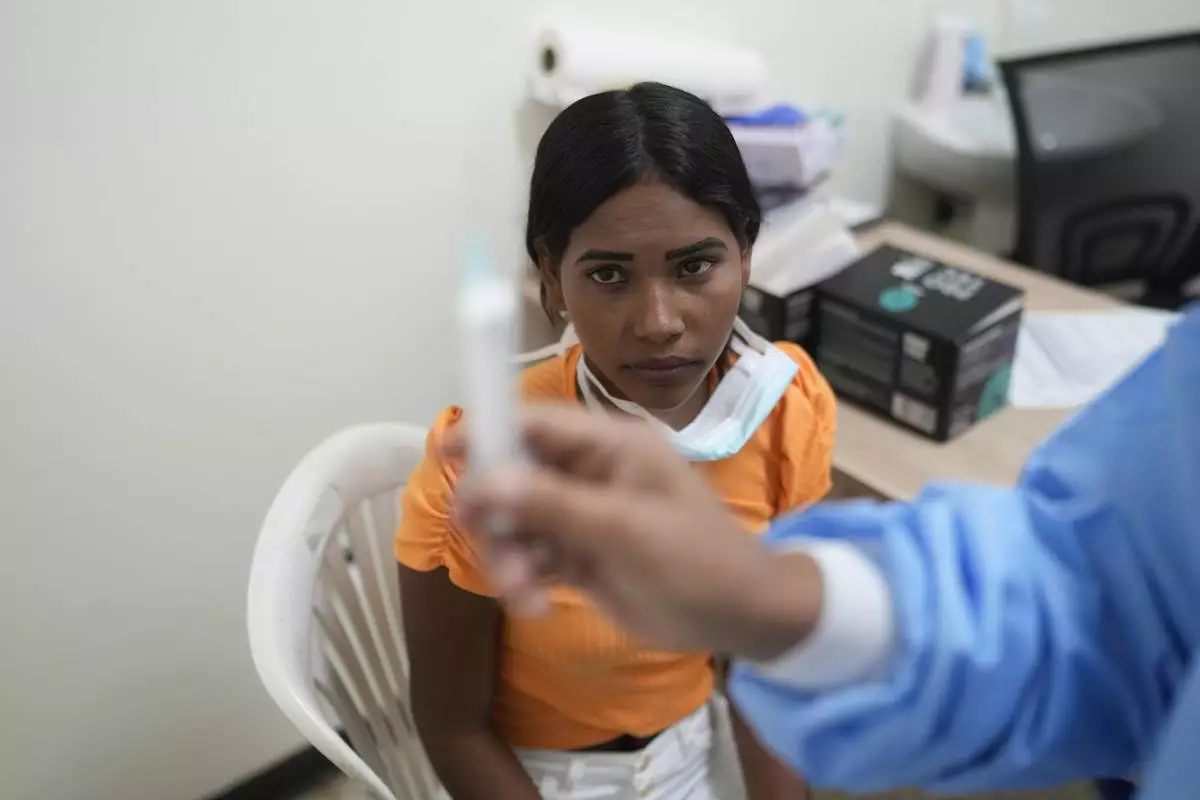
A patient looks at a birth control injection at a Doctors without Borders medical clinic in Putucual, Venezuela, Wednesday, Jan. 10, 2024. A group of women and teenage girls visited the medical clinic in eastern Venezuela where a community health worker taught them how to use an IUD, condoms and birth control pills correctly and about HPV infections. (AP Photo/Matias Delacroix)
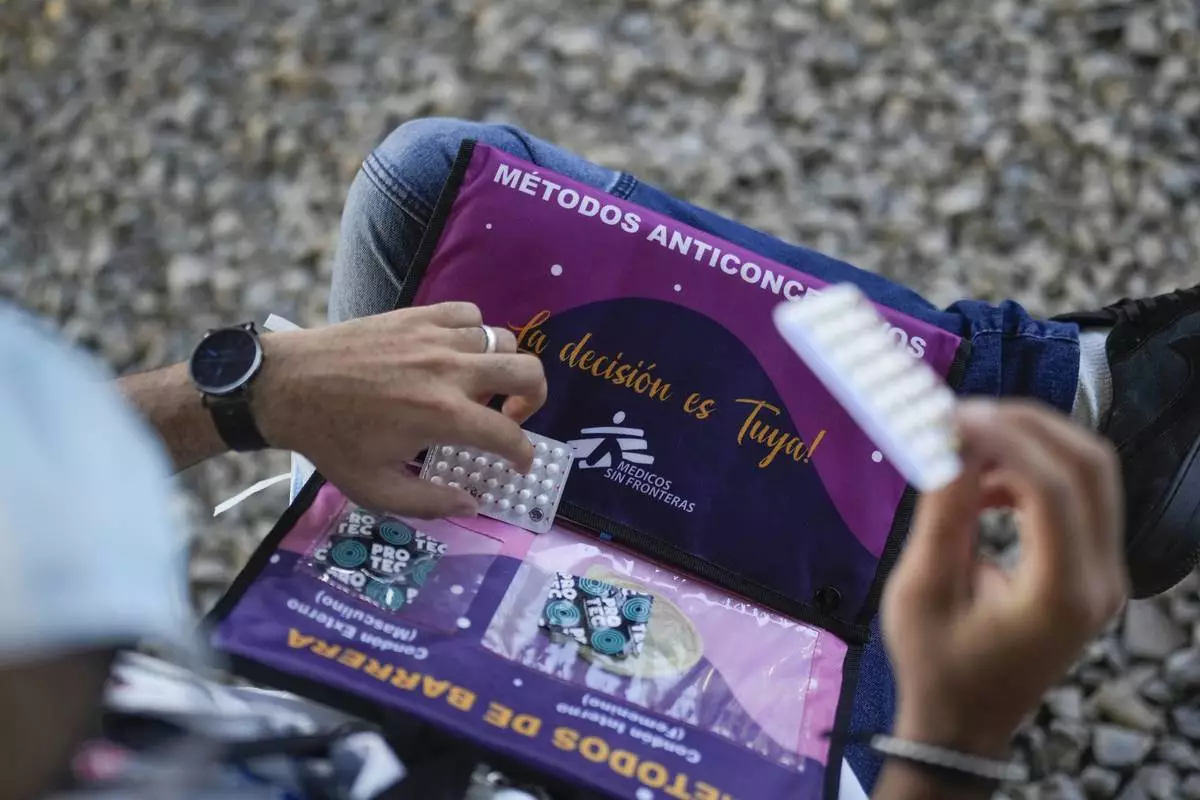
A community health worker teaches a group of women and teenage girls about contraception methods, at a Doctors Without Borders medical clinic, in Putucual, Venezuela, Wednesday, Jan. 10, 2024. The health worker also asked them what they knew about HPV. (AP Photo/Matias Delacroix)
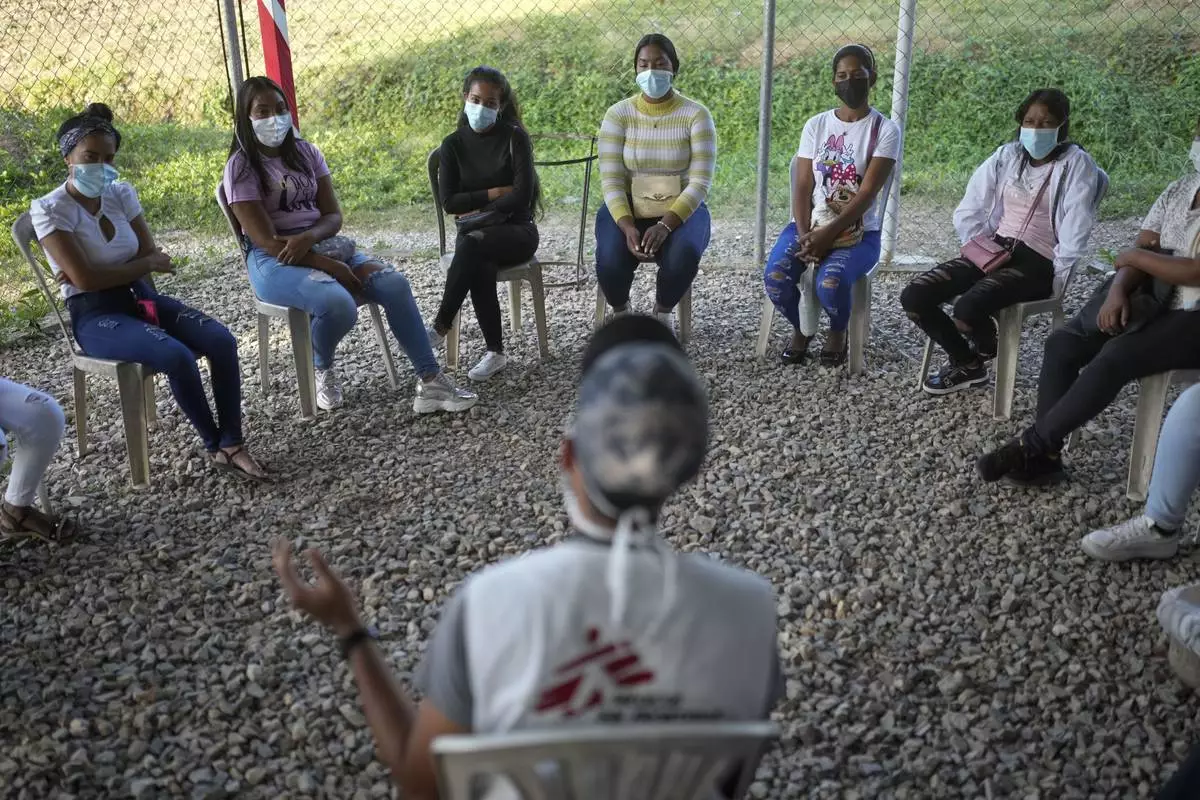
A community health worker teaches a group of women and teenage girls about contraception methods, at a Doctors Without Borders medical clinic, in Putucual, Venezuela, Wednesday, Jan. 10, 2024. The health worker also asked what they knew about HPV. (AP Photo/Matias Delacroix)
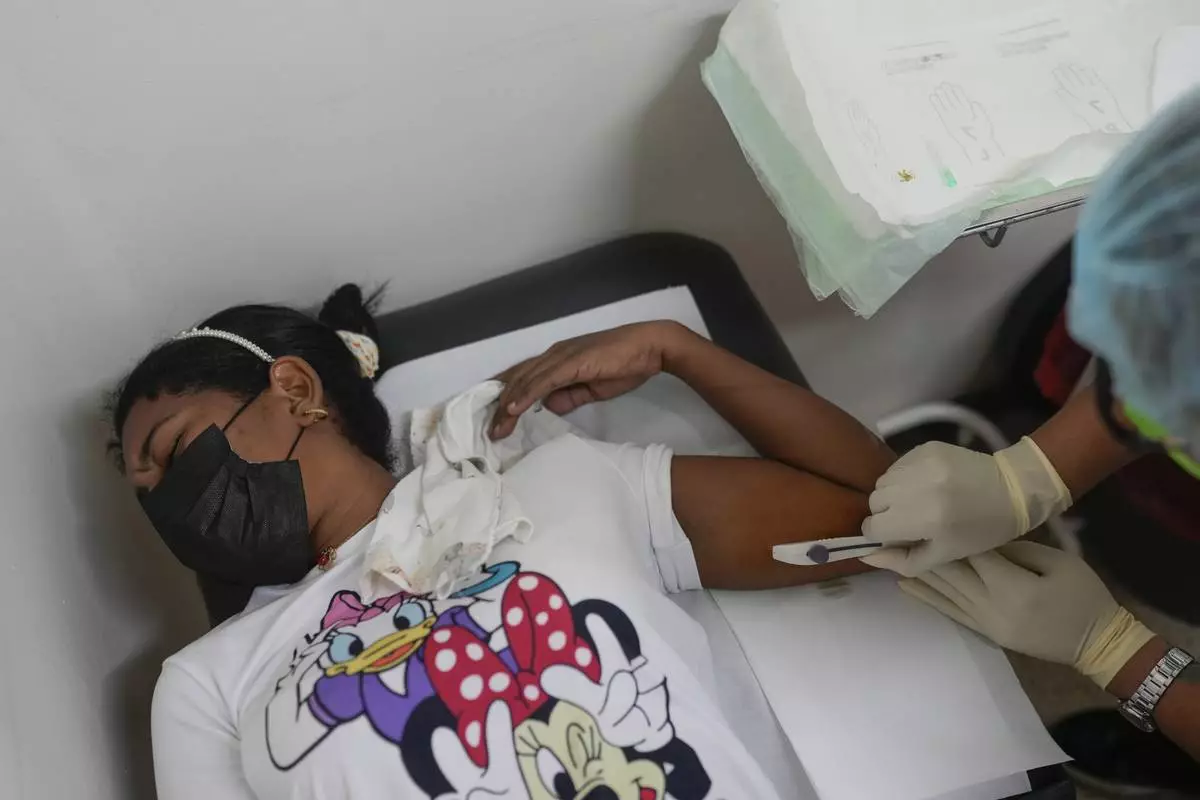
A patient receives a birth control implant at a Doctors without Borders medical clinic in Putucual, Venezuela, Wednesday, Jan. 10, 2024. A group of women and teenage girls visited the medical clinic in eastern Venezuela where a community health worker taught them how to use an IUD, condoms and birth control pills correctly and about HPV infections. (AP Photo/Matias Delacroix)
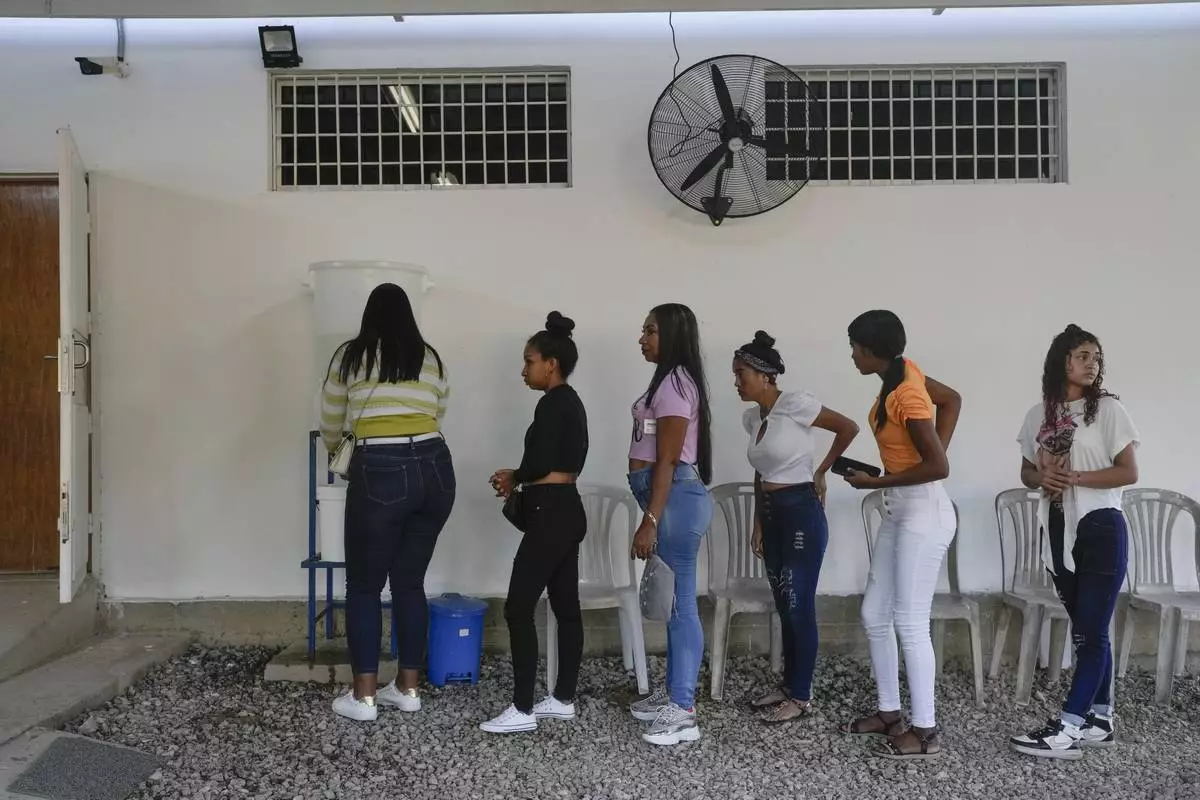
Patients wait their turn to enter a Doctors without Borders medical clinic in Putucual, Venezuela, Wednesday, Jan. 10, 2024. The women and teenage girls came to the medical clinic in eastern Venezuela for free contraceptives where a community health worker taught them how to use an IUD, condoms and birth control pills correctly and about HPV infections. (AP Photo/Matias Delacroix)
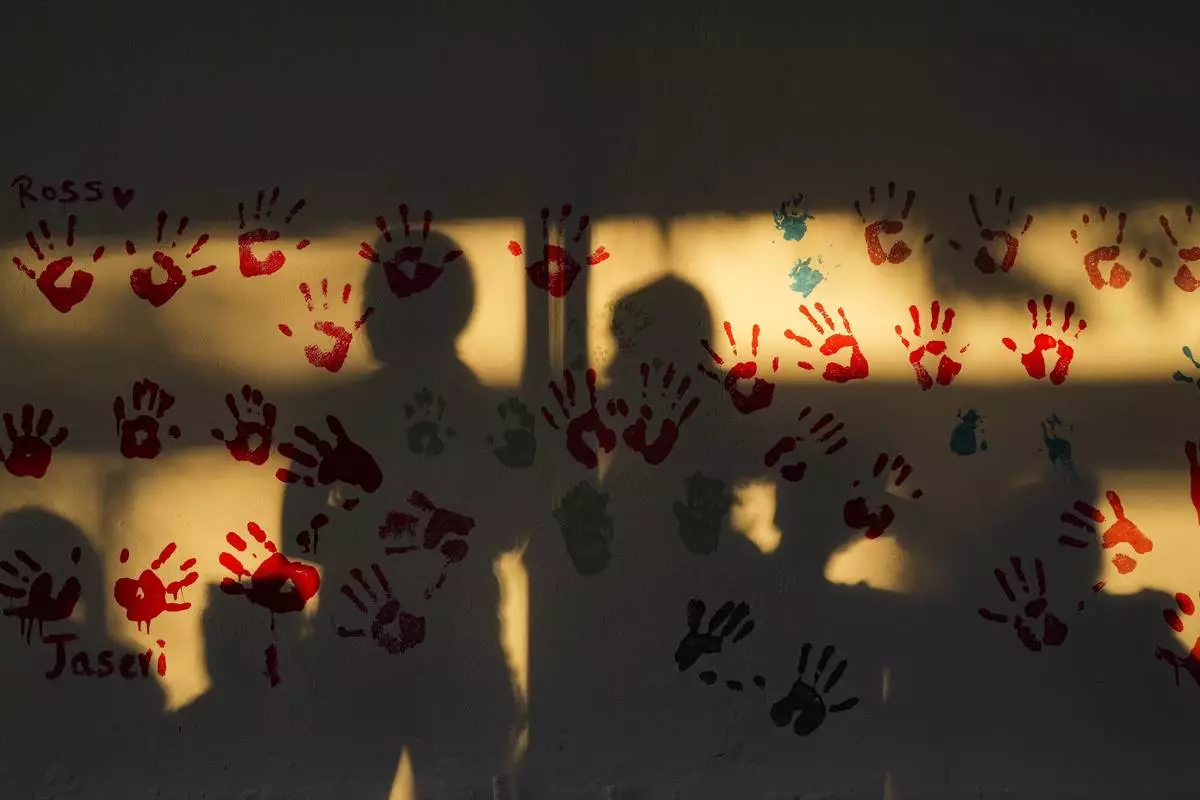
Patients' shadows are cast on a wall at a Doctors Without Borders medical clinic in Putucual, Venezuela, Wednesday, Jan. 10, 2024. A group of women and teenage girls visited the medical clinic in eastern Venezuela for free contraceptives where a community health worker taught them how to use an IUD, condoms and birth control pills correctly and about HPV infections. (AP Photo/Matias Delacroix).










